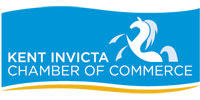Family-run businesses in the UK - including farms - are putting their enterprises at risk because they haven't got up-to-date wills or adequate plans for the future, according to estate planning experts.
New research conducted by STEP, the membership body for inheritance advisors, shows that 69% of family business owners do not have a succession plan detailing who will run and own the business after their death; what's more, only 32% of family business owners in the UK have an up-to-date will.
Inheritance tax changes
With many family businesses, including farming families, facing an inheritance tax charge on death following the recent Budget and the curtailment of the availability of inheritance tax Business Property Relief (BPR) and Agricultural Property Relief (APR), the need for family businesses to create a succession plan has become even more important.
According to the STEP family business survey, the top three reasons for not having a succession plan are:
- 27% say they know they should do it, but haven't got around to it;
- 15% say they don't need to do it yet as there is plenty of time to plan;
- 14% don't have a clear successor.
For those without a succession plan, business owners said they would make a plan for the future of the business if:
- They experienced a significant change in their health (24%);
- They wanted to step back from the business or retire (23%);
- They had reached the age of 60 or more (22%).
STEP members, who include lawyers, financial advisors and estate practitioners, are seeing an increase in demand for inheritance and succession services as a consequence of growing complexity within families. Blended families, divorce and relationship breakdowns, combined with an increase in dementia and incapacity, are also affecting family dynamics, according to STEP.
"Without an up-to-date will and succession plan in place, family business owners increase the risk of family and business breakdown and higher inheritance tax liabilities. This leaves family members and employees to deal with the often very painful fall-out with the business, its values and wealth not passed on as intended. The fire sale of the family business, family members locked in disputes and being excluded from the business are very real and unintended legacies for too many family businesses." Matthew Braithwaite, STEP member and partner at Wedlake Bell.
Only 44% of family business owners surveyed have had a conversation with family members about their succession wishes for the family business and assets following their death; 27% say they avoid talking about the business and its finances with family members altogether.
The dangers of not having a succession plan
In the UK, there are 4.8 million family businesses employing 13.9 million people, making up nearly 90% of all private sector businesses. The biggest fears of family business owners, if they were to die tomorrow without a succession plan in place, are:
- The business won't be run with the same core values (32%);
- Family infighting and disagreements (27%);
- The business would close and staff would lose their jobs (25%);
- Family members could be pushed out of the business (23%).
In contrast, 74% of family businesses with a succession plan agree that having a plan has made their business stronger and has helped them to grow.
"It's crucial that family business owners talk and plan, particularly when inheritance tax is likely to be a greater consideration," said Matthew Braithwaite. "Legacy is incredibly important to family businesses and starting the conversation means that the future of the business and your family is much more secure. Have the conversation now, get advice and put in place an up-to-date will and succession plan. This will save so much in-fighting, conflict, emotional distress and financial cost in the long run, and help preserve the business and its legacy."
The majority of family business owners surveyed by STEP (60%) say they would like the business to stay within the family and pass to the next generation. This increases to 70% among those that have put a succession plan in place. There is further advice for family business owners on the STEP website.
Written by Rachel Miller.
